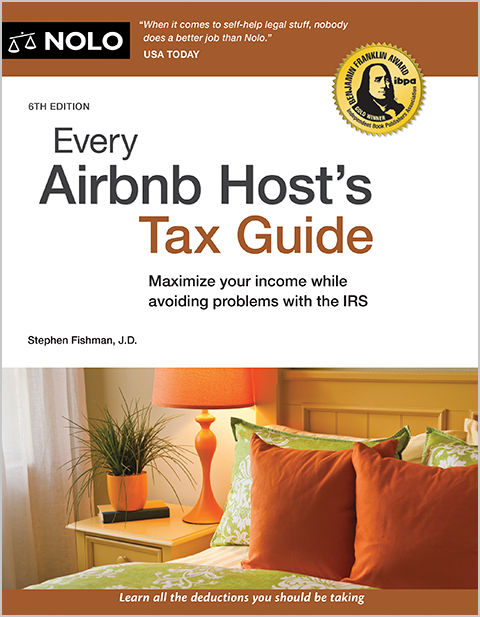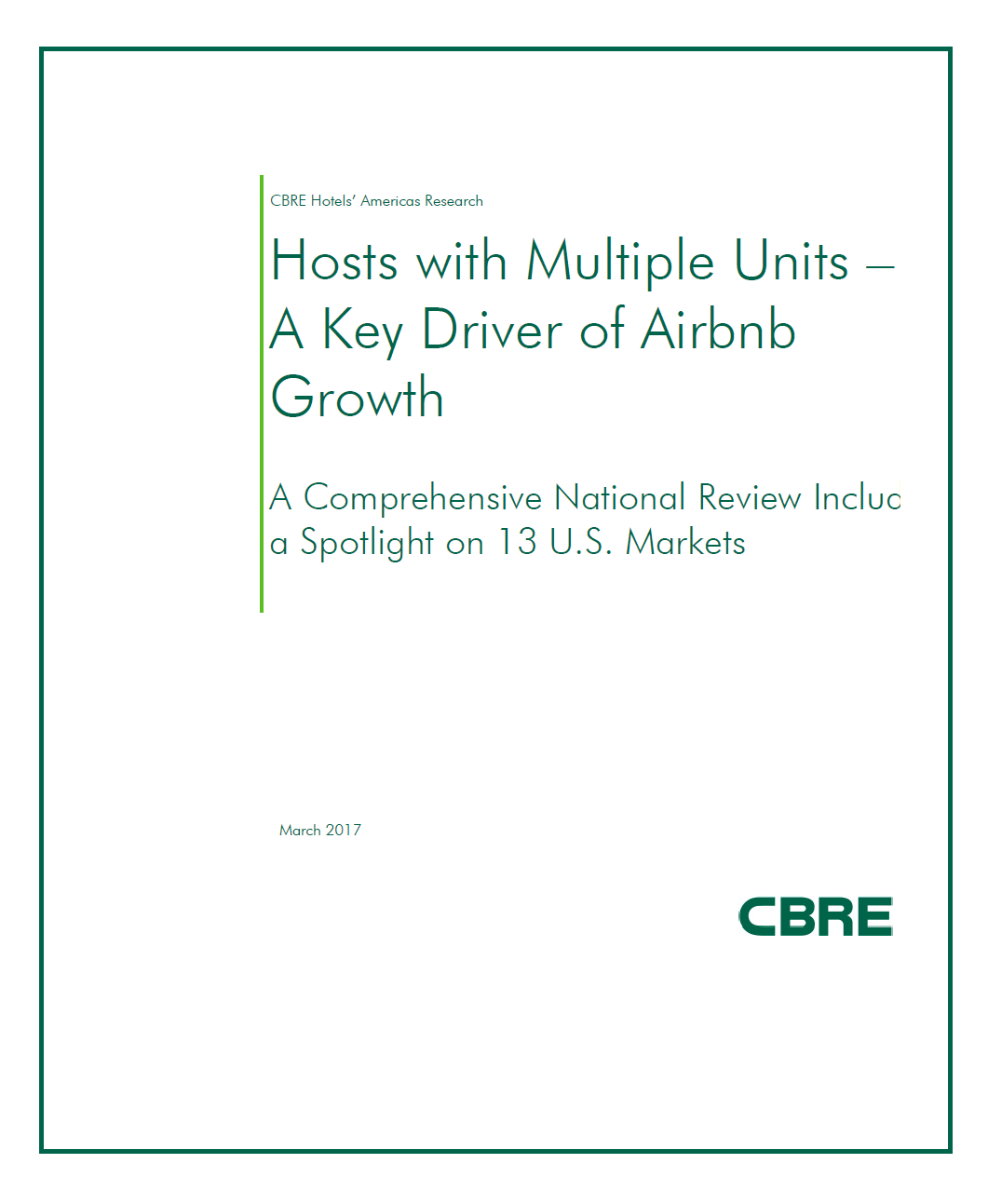As an Airbnb host, you are responsible for paying state and local taxes on the income you earn from your rentals. It’s crucial to understand and comply with the tax regulations in your area to avoid penalties.
State and local taxes for Airbnb hosts can vary widely, so it’s essential to research the specific requirements for your location. By staying informed and fulfilling your tax obligations, you can ensure a smooth and legal operation as an Airbnb host.
Hosting on Airbnb can be a lucrative venture, but it’s important to be aware of the tax implications. In this blog post, we’ll explore the various state and local taxes that Airbnb hosts may be subject to and provide tips for navigating this aspect of the rental business.

Credit: store.nolo.com
Contents
- 1 Introduction To Taxes For Airbnb Hosts
- 2 Income Taxes: What You Need To Know
- 3 State And Local Tax Obligations
- 4 Sales Taxes And Occupancy Taxes
- 5 Deductions And Credits For Airbnb Hosts
- 6 Record-keeping And Documentation
- 7 Filing Your Taxes As An Airbnb Host
- 8 Seeking Professional Tax Advice
- 9 Frequently Asked Questions
- 10 Conclusion
Introduction To Taxes For Airbnb Hosts
As an Airbnb host, understanding your tax obligations is crucial for maintaining compliance and avoiding potential penalties. This introductory section will cover the importance of grasping your tax responsibilities and provide an overview of key tax terms that every Airbnb host should be familiar with.
The Importance Of Understanding Your Tax Obligations
Understanding your tax obligations is essential to ensure that you meet the legal requirements and avoid any potential issues with the tax authorities. By familiarizing yourself with the tax regulations applicable to Airbnb hosting, you can effectively manage your finances and maintain accurate records, thereby minimizing the risk of facing penalties.
Key Tax Terms Every Airbnb Host Should Know
As an Airbnb host, certain tax terms are crucial to comprehend in order to navigate the tax landscape effectively. Familiarizing yourself with key terms such as income tax, transient occupancy tax, deductible expenses, and estimated tax payments can empower you to make informed decisions and optimize your tax position as a host.

Credit: www.ahla.com
Income Taxes: What You Need To Know
Determining Your Taxable Income
As an Airbnb host, understanding how to determine your taxable income is crucial. Your taxable income is calculated by subtracting allowable expenses from your rental income. These expenses may include mortgage interest, property taxes, insurance, and maintenance costs.
Federal Income Tax Considerations
When it comes to federal income tax, Airbnb hosts are required to report their rental income on Schedule E of Form 1040. The net income or loss from your rental activity will then be included in your overall tax return. It’s essential to keep thorough records of your rental income and expenses to accurately report this information to the IRS.
State And Local Tax Obligations
For Airbnb hosts, understanding state and local tax obligations is crucial. Complying with tax laws ensures smooth operations and avoids penalties. It is essential to stay informed and fulfill tax responsibilities to operate legally and successfully.
As an Airbnb host, it is important to understand your state’s income tax laws and how they apply to short-term rentals. Each state has different rules and regulations when it comes to taxing rental income. Some states require hosts to register with the state and pay taxes on their rental income, while others have no such requirements.To navigate state income taxes, start by researching the tax laws in your state and consulting with a tax professional if necessary. Keep accurate records of your rental income and any expenses related to your rental property. This will help you accurately report your rental income and deductions on your state tax return.
Understanding Local Taxes And Fees
In addition to state income taxes, many cities and localities also impose taxes and fees on short-term rentals. These can include occupancy taxes, transient occupancy taxes, and sales taxes.To understand your local tax obligations, research the tax laws in your city or county and consult with local officials if necessary. Many cities require hosts to register for a permit or license to operate a short-term rental, and failure to do so can result in fines and penalties.Ensure you are aware of any tax and fee obligations and factor them into your rental rates and expenses. Keeping accurate records of these taxes and fees will also help you accurately report them on your tax returns.Overall, understanding state and local tax obligations is crucial for Airbnb hosts to avoid penalties and ensure compliance with tax laws. By staying informed and keeping accurate records, hosts can navigate the tax landscape and focus on providing a great guest experience.Sales Taxes And Occupancy Taxes
Sales taxes and occupancy taxes are important considerations for Airbnb hosts when it comes to state and local taxes. These taxes are levied on the revenue generated from short-term rentals and vary by location. Understanding and complying with these tax obligations is crucial for hosts to avoid any legal or financial consequences.
Sales Taxes and Occupancy Taxes are two types of taxes that Airbnb hosts need to be aware of. Sales taxes are levied on the sale of goods or services and vary from state to state, while occupancy taxes are specific to the rental of lodging accommodations. As an Airbnb host, it’s important to understand how to calculate and collect sales taxes and manage occupancy taxes to avoid any legal issues and ensure compliance with local regulations.How To Calculate And Collect Sales Taxes
Calculating and collecting sales taxes can be a daunting task for new Airbnb hosts. The first step is to determine the applicable sales tax rate in your state. This information can be found on your state’s department of revenue website or by consulting with a tax professional. Once you have determined the sales tax rate, you can calculate the amount of sales tax to be collected by multiplying the rate by the total amount of the rental fee.To collect sales taxes, Airbnb offers a feature that allows hosts to add a separate line item for sales taxes on their listings. Alternatively, hosts can include the sales tax in the total rental fee and pay the tax themselves. Whichever method you choose, it’s important to keep accurate records of the sales tax collected and report it on your tax return.Occupancy Tax: What It Is And How To Manage It
Occupancy tax, also known as transient occupancy tax, is a tax levied by local governments on the rental of lodging accommodations. The tax rate varies depending on the location and can range from less than 1% to over 15%. As an Airbnb host, it’s your responsibility to collect and remit occupancy taxes to the local government.To manage occupancy taxes, Airbnb offers a feature that automatically calculates and collects the tax on behalf of the host. However, some local governments require hosts to register and obtain a permit before collecting occupancy taxes. It’s important to check with your local government to ensure compliance with their regulations.In conclusion, understanding and managing sales taxes and occupancy taxes is a crucial part of being an Airbnb host. By following the guidelines outlined above, hosts can avoid legal issues and ensure compliance with local regulations.Deductions And Credits For Airbnb Hosts
As an Airbnb host, it’s important to understand the state and local tax deductions and credits available to you. These can include occupancy taxes, sales taxes, and even property tax deductions. Make sure to keep accurate records and consult with a tax professional to maximize your savings.
Common Deductions To Reduce Your Taxable Income
As an Airbnb host, it’s important to understand the deductions you can take advantage of to reduce your taxable income. By maximizing these deductions, you can keep more money in your pocket and minimize your tax liability. Here are some common deductions available to Airbnb hosts:1. Mortgage Interest: If you have a mortgage on the property you rent out, you can deduct the interest paid on that mortgage. This deduction can be a significant advantage for hosts who have a sizable mortgage.2. Property Taxes: As an Airbnb host, you can deduct the property taxes you pay on the rental property. Keep track of these expenses and include them when calculating your deductions.3. Utilities: You can deduct a portion of your utility bills, such as electricity, water, and gas, that are directly related to the rental property. Be sure to keep accurate records and calculate the percentage of these expenses that apply to your Airbnb rental.4. Repairs and Maintenance: Any expenses incurred for repairs, maintenance, or general upkeep of your rental property can be deducted. This includes things like painting, plumbing repairs, and appliance maintenance.5. Cleaning and Service Fees: If you hire cleaning services or pay fees to platforms like Airbnb for their services, you can deduct these expenses as well. Keep track of all cleaning and service fees paid throughout the year.6. Insurance: If you have insurance coverage specifically for your rental property, you can deduct the premiums you pay for that coverage. This includes both property insurance and liability insurance.Tax Credits Available To Airbnb Hosts
In addition to deductions, there are also tax credits available to Airbnb hosts that can further reduce your tax liability. Here are some tax credits you may be eligible for:1. Home Office Deduction: If you use a portion of your home exclusively for your Airbnb business, you may be eligible for a home office deduction. This deduction allows you to deduct a portion of your home-related expenses, such as rent or mortgage interest, property taxes, and utilities.2. Energy Efficiency Credits: If you make energy-efficient improvements to your rental property, such as installing solar panels or energy-efficient appliances, you may qualify for tax credits. These credits can help offset the costs of these upgrades and reduce your tax liability.3. Low-Income Housing Tax Credit: If you provide affordable housing through your Airbnb rental, you may qualify for the Low-Income Housing Tax Credit. This credit is designed to incentivize the provision of housing for low-income individuals and families.Remember, it’s important to consult with a tax professional or accountant to ensure you are taking full advantage of all the deductions and credits available to you as an Airbnb host. By maximizing these tax benefits, you can optimize your financial situation and reduce your overall tax burden.Credit: katv.com
Record-keeping And Documentation
Maintaining accurate record-keeping and documentation is crucial for Airbnb hosts to manage their state and local taxes. Precise documentation of income and expenses, occupancy tax payments, and other related expenses will help hosts to file their taxes correctly and avoid any penalties or fines.
Best Practices For Tracking Income And Expenses
Important Documents To Keep For Tax Time
For tax time, ensure you have:1. Income statements from Airbnb 2. Expense receipts and invoices 3. Mileage logs for business tripsFiling Your Taxes As An Airbnb Host
As an Airbnb host, navigating state and local taxes is crucial. Understanding the tax implications for hosting guests in different locations can impact your overall tax liability. It’s essential to stay informed about the specific tax requirements in each area where you operate your Airbnb business to ensure compliance and avoid any potential issues.
Choosing The Right Tax Forms
As an Airbnb host, selecting the correct tax forms is vital.Tips For A Smooth Tax Filing Process
Follow these guidelines for a stress-free filing experience.Seeking Professional Tax Advice
Seeking professional tax advice is crucial for Airbnb hosts to navigate the complexities of state and local taxes effectively.
When To Consult A Tax Professional
When tax laws change, host earnings increase, or facing an audit.
Finding The Right Tax Advisor For Airbnb Hosts
- Look for experience in short-term rental taxation.
- Consider their knowledge of local tax regulations.
- Ensure they offer personalized advice tailored to your situation.
Frequently Asked Questions
Do You Pay Local Taxes On Airbnb?
Yes, as an Airbnb host, you may be required to pay local taxes on your rental income. It’s important to check the specific tax laws and regulations in your area to ensure compliance.
How Are Airbnb Hosts Taxed?
Airbnb hosts are subject to taxes on their rental income. They must report their earnings and pay income tax according to the laws of their country or region. Hosts may also be required to collect and remit occupancy taxes, depending on local regulations.
It is important for hosts to understand and comply with their tax obligations to avoid any penalties or legal issues.
How Do I Add Local Tax To My Airbnb Listing?
To add local tax to your Airbnb listing, go to your Airbnb account and navigate to the “Pricing” section. Under “Taxes,” select the option to add local tax and enter the applicable rate. Make sure to check the local regulations for accurate tax information.
What Is The Federal Tax Rate For Airbnb Income?
The federal tax rate for Airbnb income varies, but it’s generally your regular income tax rate. Deductions may apply.
Conclusion
It is crucial for Airbnb hosts to be aware of their obligations when it comes to state and local taxes. By understanding the specific regulations in their area, hosts can ensure they are compliant and avoid any potential penalties. Remember to keep accurate records of your rental income and expenses, and consult with a tax professional if needed.
Staying informed and proactive will help you navigate the world of taxes as an Airbnb host.


